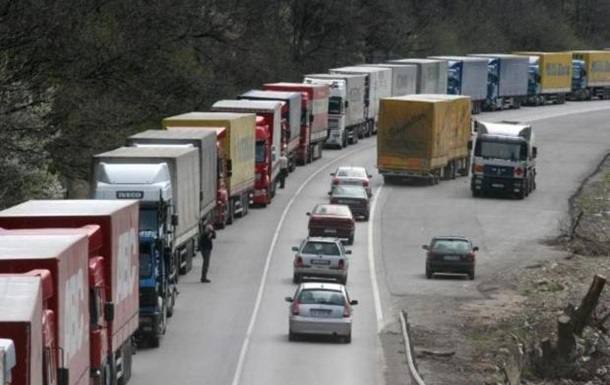
Since the beginning of Russia's full-scale invasion of Ukraine, Ukrainian farmers have lost their main logistics routes for exporting their products, in particular through the ports. To prevent a food crisis, the EU countries urgently created “Solidarity Lanes” using all appropriate modes of transportation and abolished quotas on food exports to the EU market for a year.
As a result of the restriction of traditional sea routes for exporting Ukrainian agricultural products, agreements were reached with the Republic of Poland in the summer and early fall of 2022 to simplify control procedures at the border.
However, Ukrainian farmers report that from February 17, 2023, they began to face increased veterinary control and corresponding significant delays at the border with Poland at the Yagodyn-Dorogusk border crossing point (BCP) when exporting grain from Ukraine both to Poland and in transit through Poland to other countries.
“Considering the above, the actual slowdown in the movement of cargo with agricultural products, primarily grain, on the Ukrainian-Polish border creates insurmountable obstacles for Ukrainian exporters, which in turn will critically affect both the agricultural sector of Ukraine and the economy as a whole, which is a critical issue for the country in times of war,” said Andriy Dykun, head of the Ukrainian Agri Council.
The Ukrainian Agri Council, which represents the interests of more than 1,100 small and medium-sized agricultural producers from all over Ukraine, is concerned about the situation on the Ukrainian-Polish border.
As reported by national companies, selective control of feed grain in trains and trucks has been changed since February 16, 2023. According to these changes, the frequency of inspections of grain in trucks is immediately increased, and in the case of rail transport, each wagon is inspected. This led to the fact that starting from 17.02.2023, trains are left at the Dorogusk station for 3–4 days for veterinary control. Until 17.02.2023, the time of the train at the Dorogusk station took only 1 day. In addition, the veterinary inspection also checks each transit wagon, for which veterinary control was canceled and should not be carried out.
Moreover, since February 27, 2023, it has been prohibited to export grain from Ukraine through the Izov-Krubiesz railway crossing.
According to Ukrainian farmers, almost 50% of the grain that passes through Poland by rail is transported through the LHS checkpoint. This prohibition increases the duration of veterinary inspections, as currently every carriage is subject to such inspections, and the railroad network is unable to accommodate such a large number of cars.
«At the same time, we would like to thank the Polish side in 2022 for introducing some additional measures to increase the capacity of BCP, such as the possibility of veterinary control inside the country. However, most of these measures were canceled at the end of 2022. This reduced the passage of grain cargoes through the BCP Yagodyn-Dorogusk by almost 2 times, and on 22.02.2023, the queue for this BCP reached 1,300 trucks.
Such actions can undermine all efforts of the European Union and Ukraine to develop the Solidarity Lines and will cause significant damage to the agricultural sector, which is the main segment of the economy of Ukraine in these dark times», said Andriy Dykun, head of the Ukrainian Agri Council.
According to Ukrainian farmers, in the context of the ongoing state of war, creating additional obstacles to the export of agricultural products, in particular in transit, by land between Ukraine and Poland, will not benefit the two countries, but will benefit the common enemy—Russia.
The Ukrainian Agri Council emphasizes the importance of restoring the previous procedure of selective control of grain transported across the Ukrainian-Polish border by rail and road.
It should be noted that in the medium and long term, the European Commission has called on EU member states to work on increasing the infrastructure potential of new export corridors for Ukraine and on establishing new infrastructure connections as part of the reconstruction of the state and has called on national authorities to apply maximum flexibility and provide adequate staff to accelerate procedures at border crossings.
Tuesday, 28 February 2023